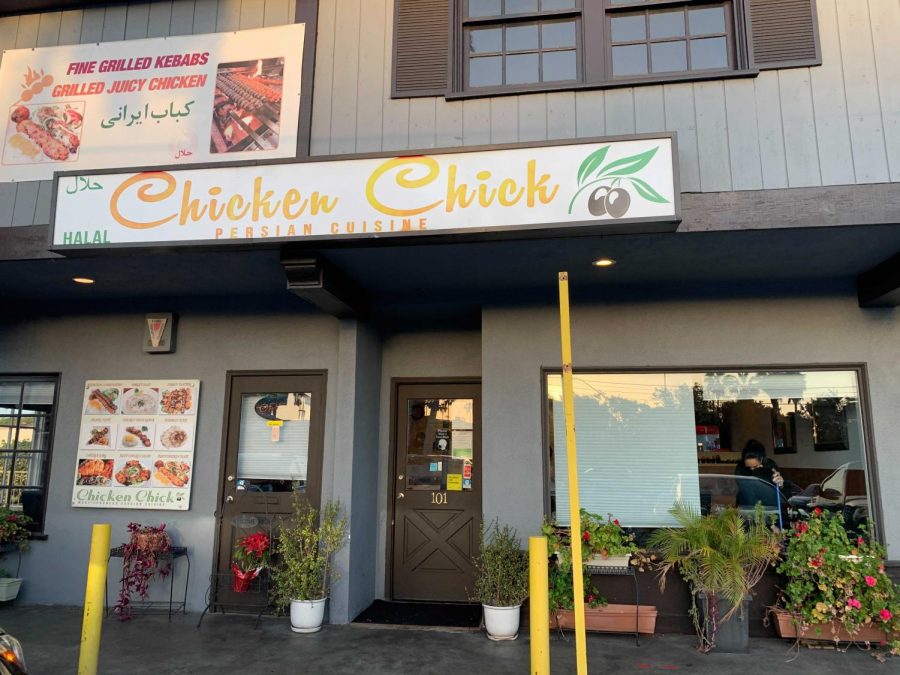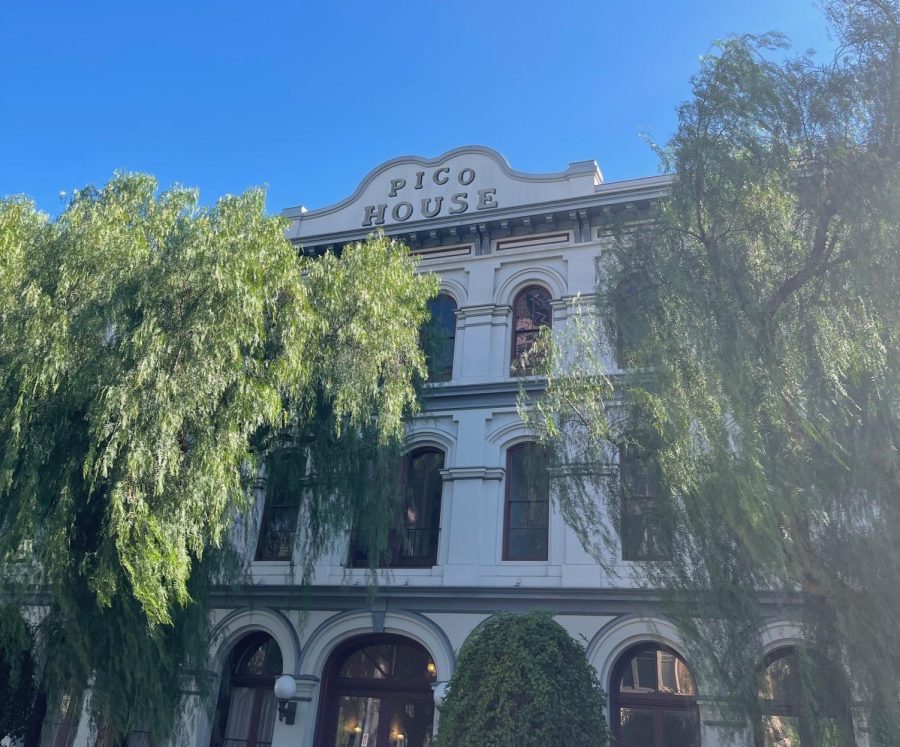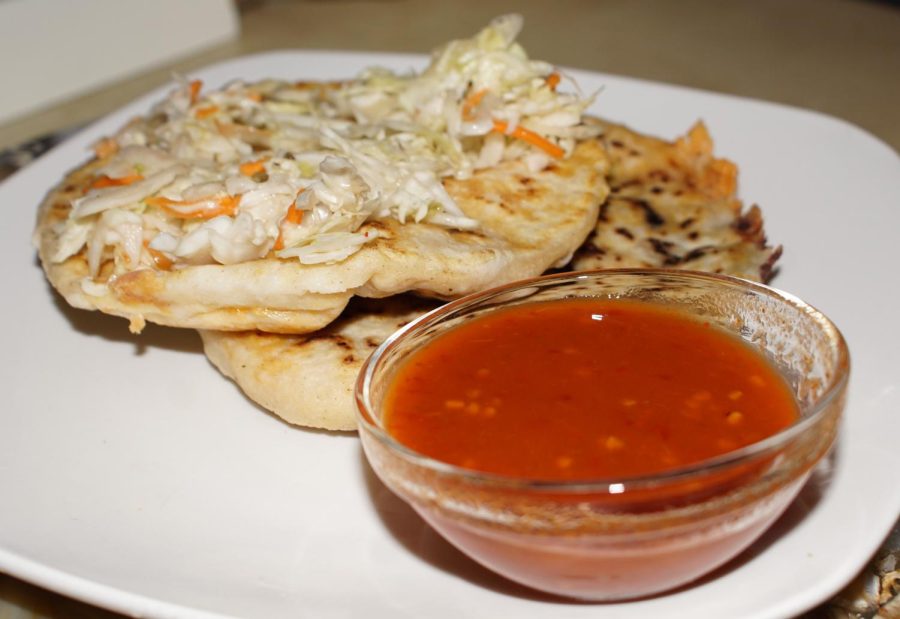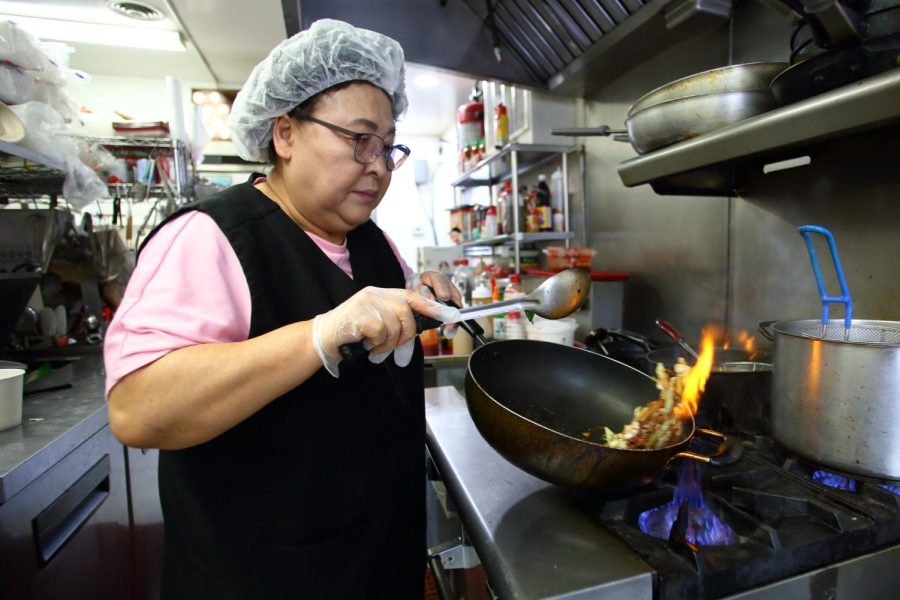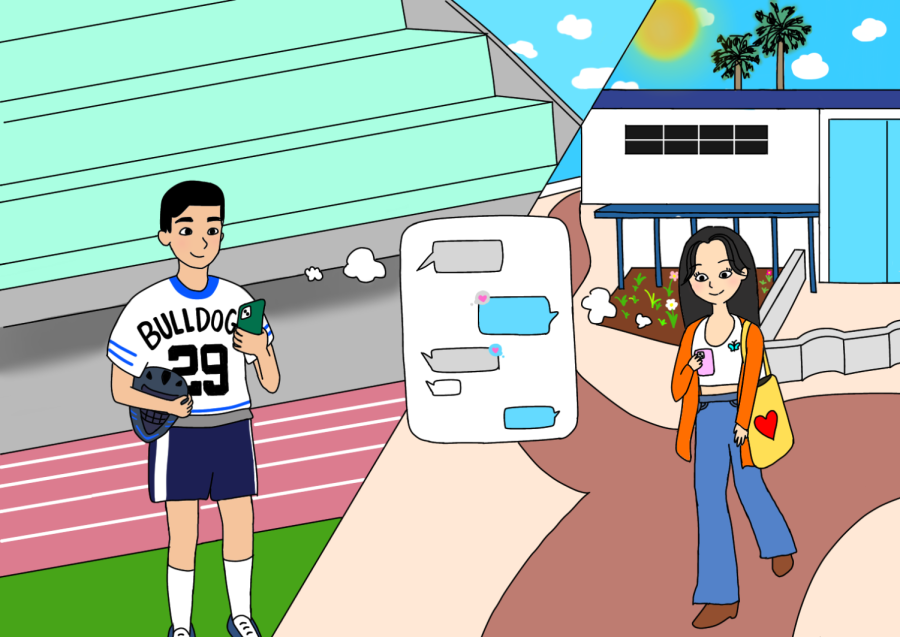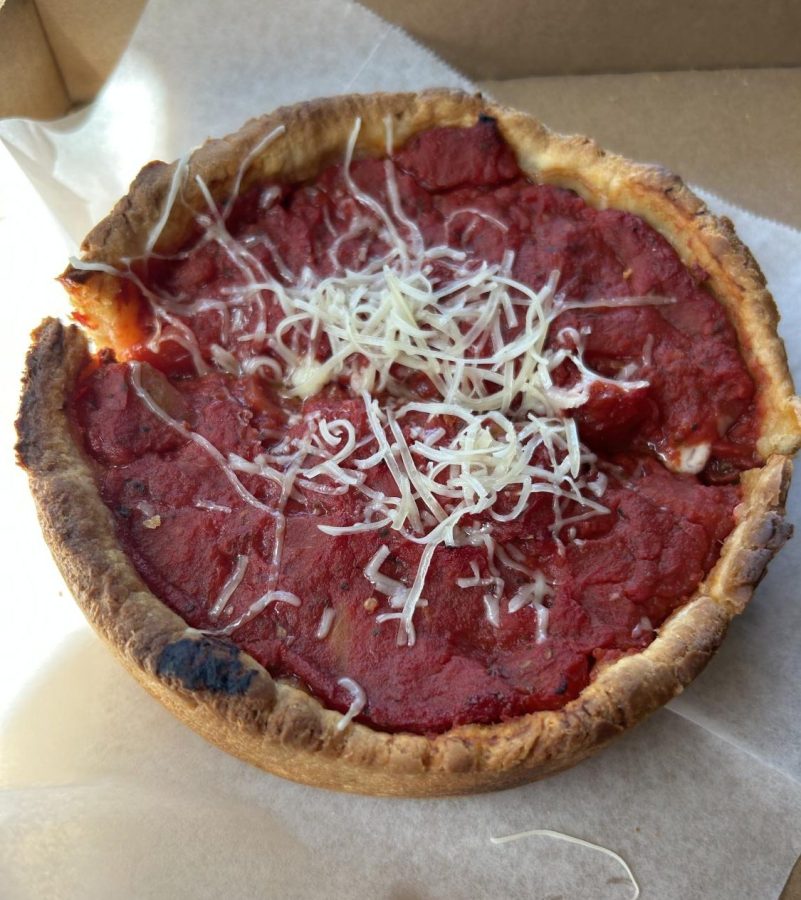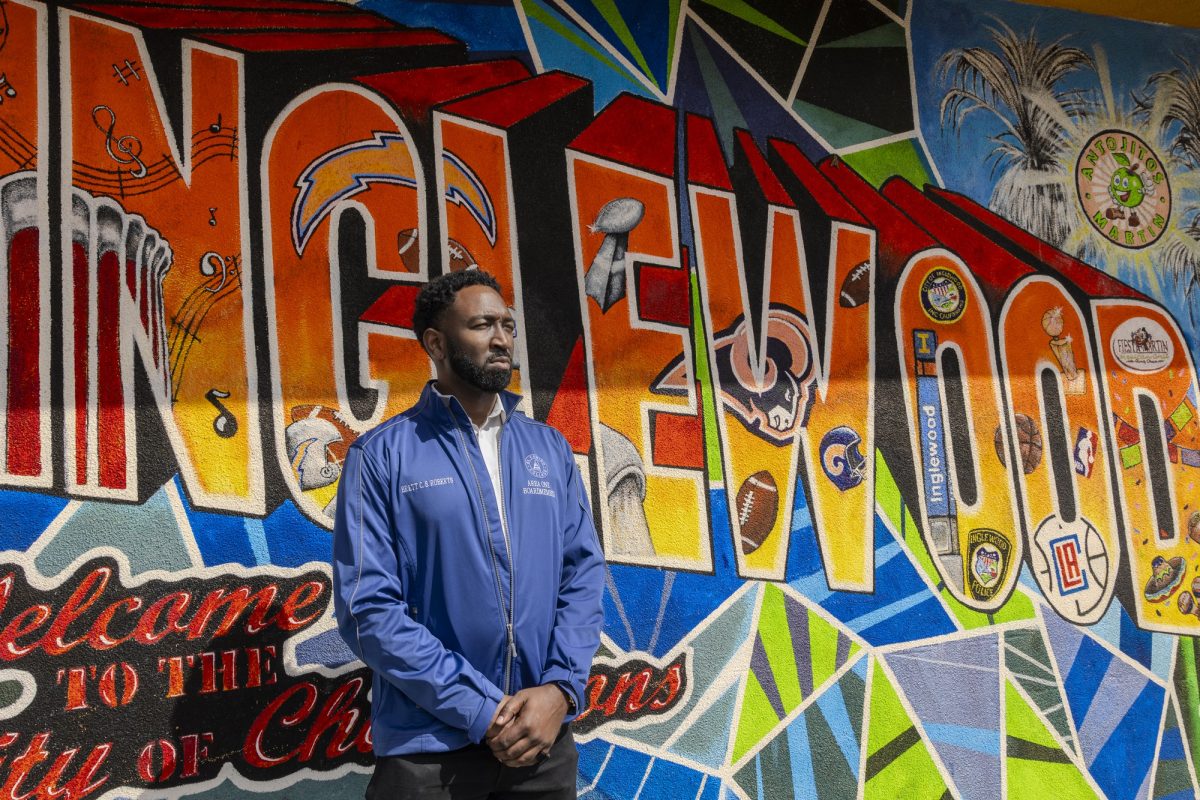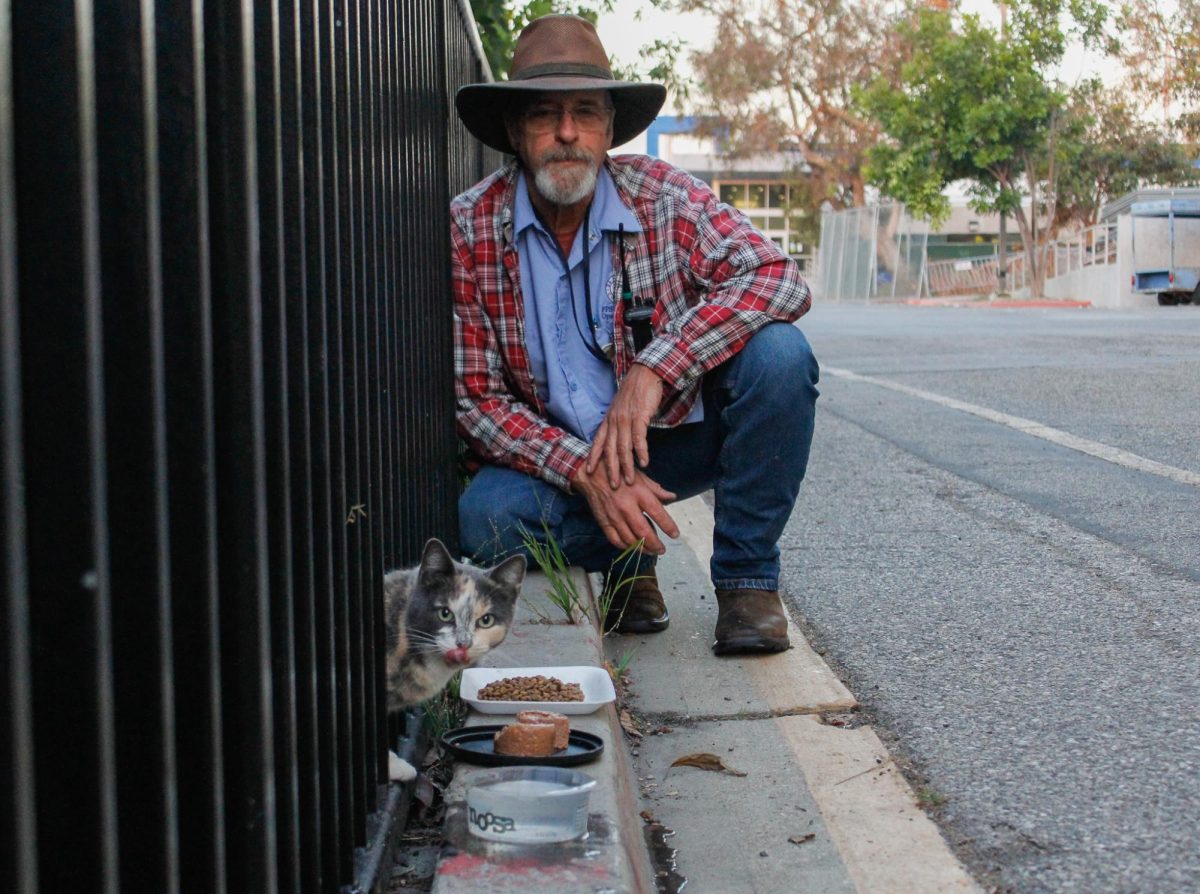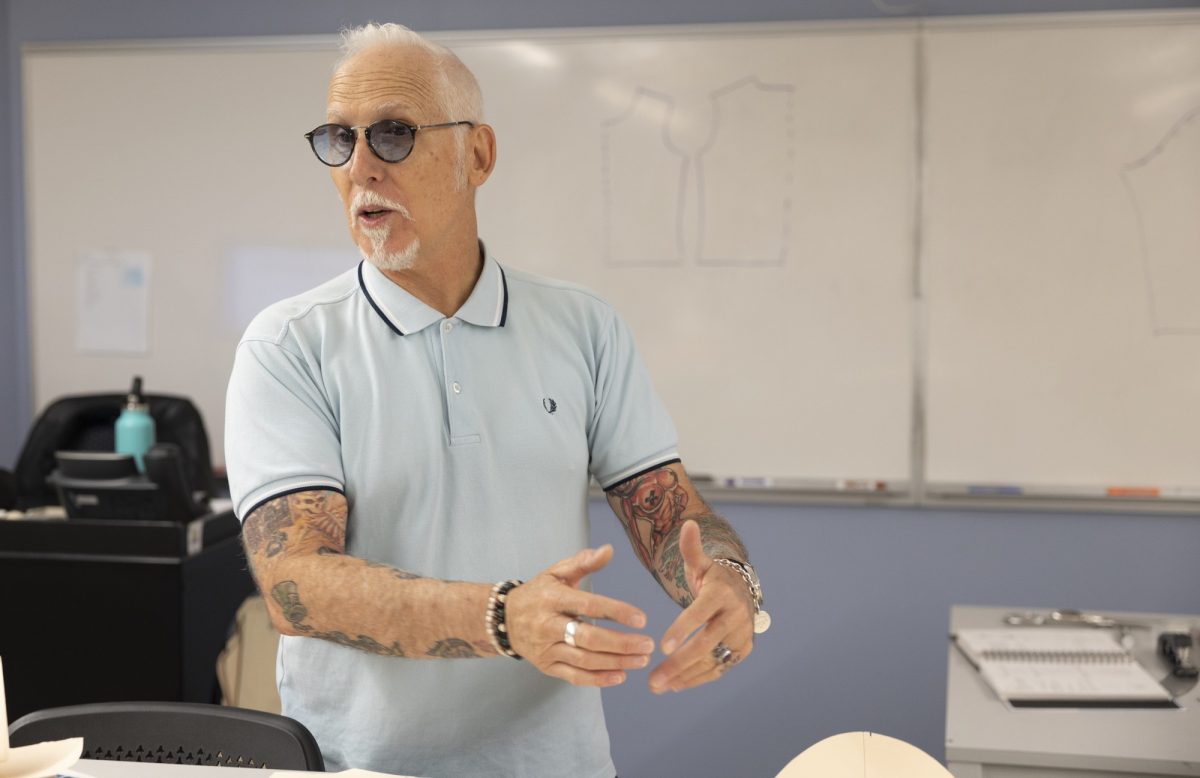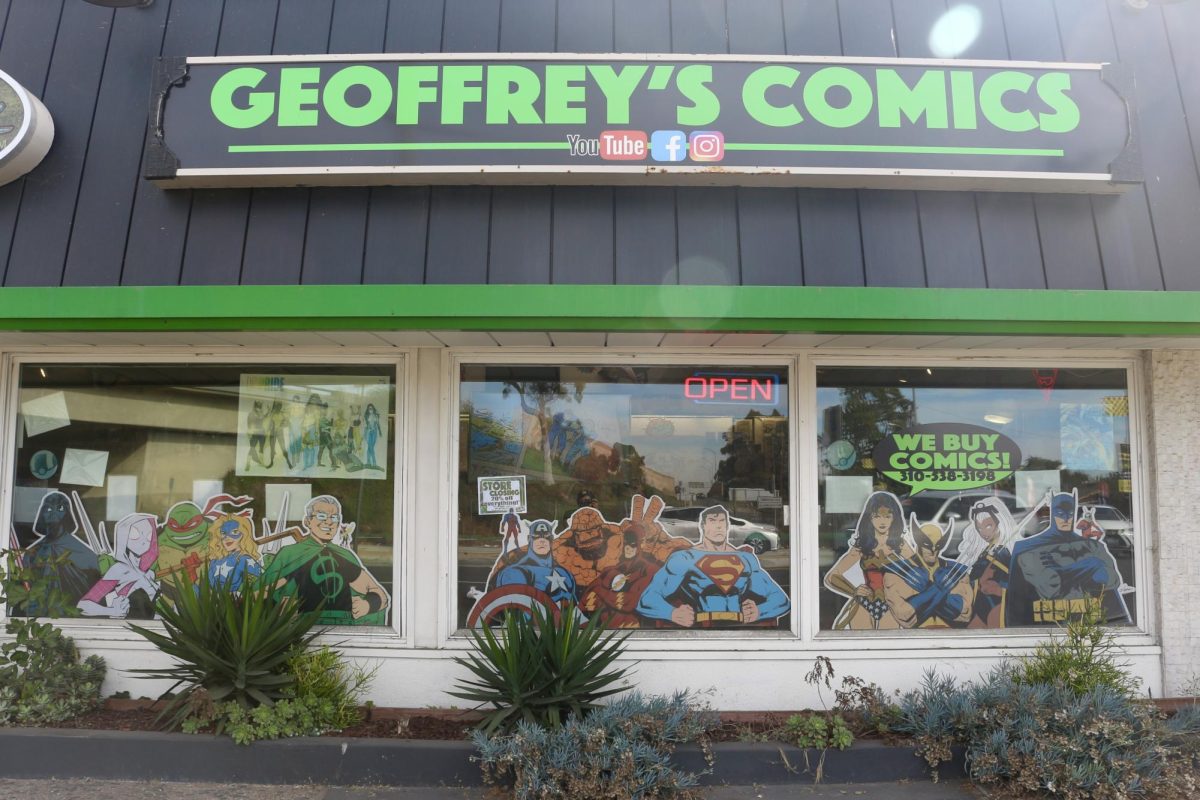Juicy chicken, spicy chicken, or fried chicken, animal protein cravings makes the restaurants rich. Restaurants were in boom especially those around colleges, but all of a sudden, COVID-19 pandemic struck the world and there was a halt. Chains of restaurants fell apart in some cities but those around El Camino College were not broken, like Chicken Chick, which continued to sell southwestern Asia cuisines.
Their name alone states chicken is their primary business, and the uniqueness about their meals is that the recipes are Persian, creating a niche for themselves amongst their competitors.
Dressed in a black, asymmetrical strappy top, black pants, black shoes and black face mask, it was hard to distinguish the owner from the servers in similar attire. She was standing behind the cashier and not bossing around, but serving customers, it was impossible to know at first glance she was the woman in command.
“It wasn’t easy for us during the pandemic because we couldn’t find the supplies that we needed, like more options because transportation stopped from China, and everything got so expensive so it wasn’t easy,” Artefeh Moradi says.
Her calm voice is audible enough to be heard over the counter. Her server, Farous As had shared a similar view a few days back exclaiming how the cost of produce foods shot up during the pandemic, while the selling price of meals had to remain the same.
When restaurants open around colleges, more customers come from the campus. However, nobody ever imagined the whole world would be on lock down in 2020 but COVID-19 had the bragging rights to do so, using its power to keep people indoors.
Despite the fact that food is one of the things humans cannot do without, thereby creating a continuous rise in restaurant business, most restaurants around El Camino College had to take the back seat for homemade food to thrive as the campus shut down and students stayed home.
“Less people came in during the pandemic,” Artefeh says.
She further shared that the restaurant had been operating successfully for five years under her care and continued running despite the pandemic, even when it was a struggle to get supplies amidst the crisis, only to have few demands from customers.
“As a Persian restaurant, we were all worried about getting exposed to the virus, so we were careful to keep a safe distance with people,” Farous says. “Working with people was hard, because we had to take extra precautions to maintain safe contacts.”
While many cooped up in their homes during the lockdown, Albert Young proved his dedication as a customer by not reducing his weekly orders. He says that he increased his spendings there.
“I usually order like three times a week normally, but restaurants were hit hard during the crisis so I increased my orders to about five times a week,” Albert says. “Sometimes I buy food for people as gifts, something to make them happy during the dark period.”
About 6-feet tall, few wrinkles around his face with gleaming eyes, a bald head on his broad shoulders, well-built body, and dark skin, he demonstrated an amicable and positive personality with the way he spoke, gesticulating his words by his movements each time he spoke. He wore a red short-sleeves shirt and blue shorts with white trainers in the spring weather.
His enthusiasm reflected him as a loyal customer with the way he spoke about his support for the restaurant.
Although the epidemic was more or less receding, the restaurant was still operating the same way it was during the outbreak. People only came in to pick up orders, as no dining in was allowed. Customers cannot just waltz in without the door being opened by an employee.
“When the outbreak began in 2020, everything was normal at first, and then people reduced coming in, and after several months, things began to pick up again,” Farous says.
The once-filled dining space was now empty with few seats lying about. The cooks and servers could be seen having their meals during their break one at a time.
“It was hard for everyone,” Farous says. “Those times I missed serving food in the dining and getting compliments from them. Our food makes them happy.”
Artefeh described her 2020 difficult business experiences while doing something behind the cashier and concentrating at the same time. She seemed used to multitasking.
“Sometimes people were difficult during the pandemic,” she says. “Things were not the same and rules had to be followed like ensuring people wore their face-masks and maintained social distance during ordering and pick ups. It was a bit easier without the dining in but sales were down and supply was like less.”
For Farous, she said that one thing she missed about dining in was the tips.
Business owners feel the brunt of it the most, having to make all the major decisions, ensure staff are paid and motivated no matter the crisis for business to keep moving. One could feel the pain in her eyes with the way she squints at some description of her experiences.
Five years running the food business, her restaurant was still standing despite the 2020 outbreak turbulence that penetrated the world and also collapsed the stable business.
“I always order food here at least three times a week and I am not Persian,” Albert says. “I became hooked on their food three years ago when I came to pick up my niece who was schooling at El Camino. She was not through with her classes so I came to eat here to pass time. I live around so it is easy for me to patronize them after that first time.”
Albert says that he had grown accustomed to their taste and claimed that he always recommended their food to others. He added that he tells people that once they eat Persian food, other meals will taste bland.
Ubereats driver and customer, Michael Williams walks into Chicken Chick, holding his cell phone to take his fourth delivery for the day. He gives the order and code to Farous who tells him to wait while she dashes to the kitchen to check if the order is ready.
“I like working around El Camino College because there are many restaurants around. When school was opened, I was making more money,” Michael says.
One could see El Camino College buildings through the west side of the restaurant’s window. Across the south side on the opposite side of the street was El Camino parking lot. It was crystal-clear Chicken Chick was in a perfect spot for business.
Michael said that he usually buys food from Chicken Chick after he is through with his delivery service for the day.
“I enjoy their meals. I make money delivering food for them so I sometimes spend my tips there too. I make several deliveries from there every day so I decided to try out their food,” he says.
Micheal’s order arrives from the kitchen, he takes his food, presses something on his phone and dashes out to his vehicle parked in front of the restaurant with an Uber sticker on his windshield.
“Students usually buy take outs,” Farous says. “They like ‘juicy chicken’ or combos with garlic sauce.”
Due to the type of food that students buy, they do not buy more food than other customers, Artefeh shared her view as she is able to recognize students as soon as they walk in the door due to the length of time she has been in operation.
“They always have backpacks and are rushing in, I can easily tell,” she says.
Farous who had been working for a year said that students had not been coming in since the pandemic.
Nourishing others with chicken had to continue. Customers need food, restaurants need money; an intertwined relationship for survival.
Owning her own restaurant, catering Persian meals in a western cosmopolitan city had always been Artefeh’s dream, which is now her reality. She says she is glad she is a restaurant owner and likes the fact that most people do not recognize her as the owner when they come in as she blends well with her staff.
The phone rings and she repeats the order to the caller for confirmation before dropping the call.
“I am privileged to still be selling my chickens despite the COVID-19 tragedies,” she says before turning her back to head to the kitchen to give the orders to her cooks.
EDITOR’S NOTE: THIS STORY WAS UPDATED JUNE 8 TO ADD A PICTURE


